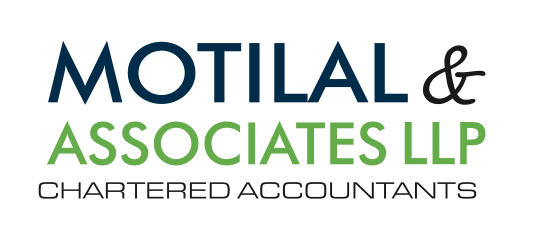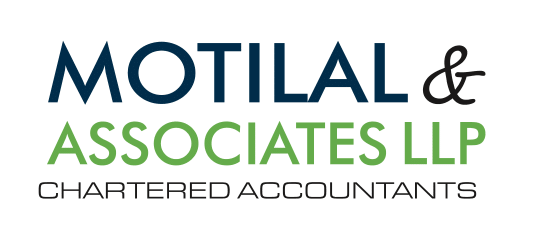UAE CORPORATE TAX-An Introduction
BACKGROUND
The Federal Decree-Law No. 47 of 2022 on the Taxation of Corporations and Businesses (hereinafter referred to as the “Corporate Tax Law”) was issued by the United Arab Emirates (“UAE”), on 09 December 2022. The Corporate Tax Law provides the legislative basis for the introduction and implementation of a Federal Corporate Tax (“Corporate Tax”) in the UAE and is effective for financial years starting on or after 1 June 2023. Given the position of the UAE as an international business hub and global financial center, the UAE Corporate Tax regime builds from best practices globally and incorporates principles that are internationally known and accepted. This ensures that the UAE Corporate Tax regime will be readily understood and is clear in its implications.
TAXABLE PERSONS
– UAE companies and other juridical persons that are incorporated or effectively managed and controlled in the UAE
– Natural persons (individuals) who conduct a Business or Business Activity in the UAE.
– Non-resident juridical persons (foreign legal entities) that have a Permanent Establishment in the UAE
– Juridical Persons established in UAE Free zone
EXEMPT PERSONS
– Government Entities
– Qualifying Public Entities
– An exemption is subject to meeting certain conditions: Public or private pension funds and social security funds, Qualifying Investment funds, – Wholly owned and controlled UAE Subsidiaries of the aforementioned funds, Wholly owned and controlled UAE subsidiaries of Government controlled Entities.
– Extractive business
– Non-Extractive Natural Resource Business
RESIDENTIAL STATUS
Resident Person: Companies and other juridical persons that are incorporated or otherwise formed or recognized under the laws of the UAE will automatically be considered a Resident Person for Corporate Tax purposes. This covers juridical persons incorporated in the UAE under either mainland legislation or applicable Free Zone regulations and would also include juridical persons created by a specific statute.
Non-Resident Person: Juridical Persons who are not Resident Persons and have a Permanent Establishment in the UAE or derive state-sourced Income
TAXABILITY AND TAX RATE
– Natural persons will be subject to Corporate Tax as a “Resident Person” on income from both domestic and foreign sources, but only insofar as such income is derived from a Business or Business Activity conducted by the natural person in the UAE. Any other income earned by a natural person would not be within the scope of Corporate Tax.
– Non-Resident Persons will be subject to Corporate Tax on Taxable Income that is attributable to their Permanent Establishment.
– Corporate Tax will be levied at a headline rate of 9% on Taxable Income of resident taxable persons exceeding AED 375,000. Taxable Income below this threshold will be subject to a 0% rate of Corporate Tax.
– For Qualifying Free Zone Persons the Tax Rate would be 0% (It is pertinent to note that Qualifying Free Zone Persons are included under taxable persons and not included under exempt persons. However, the tax rate would be 0%).
– Dividend and Capital Gains earned from both domestic and foreign shareholding will be exempt from tax.
Certain UAE-sourced income of a Non-Resident Person that is not attributable to a Permanent Establishment in the UAE will be subject to Withholding Tax (TDS) at the rate of 0%.
CONCEPT OF TAX GROUPS*
Two or more Taxable Persons who meet certain conditions (see below) can apply to form a “Tax Group” and be treated as a single Taxable Person for Corporate Tax purposes. To form a Tax Group, both the parent company and its subsidiaries must be resident juridical persons, have the same Financial Year, and prepare their financial statements using the same accounting standards and the parent company must prepare consolidated financial statements eliminating intra-group transactions.
Additionally, to form a Tax Group, the parent company must:
●own at least 95% of the share capital of the subsidiary;
●hold at least 95% of the voting rights in the subsidiary; and
●is entitled to at least 95% of the subsidiary’s profits and net assets.
A Tax Group cannot include an Exempt Person or Qualifying Free Zone Person*.
INDIA UAE TAX TREATY
With the introduction of corporate tax in the UAE, ‘AGREEMENT BETWEEN THE GOVERNMENT OF THE REPUBLIC OF INDIA AND THE GOVERNMENT OF THE UNITED ARAB EMIRATES FOR THE AVOIDANCE OF DOUBLE TAXATION AND THE PREVENTION OF FISCAL EVASION WITH RESPECT TO TAXES ON INCOME AND ON CAPITAL’, has gained significant importance for ex-pats and taxpayers of both countries. Hence, as per section 90 of the Indian Income Tax Act, 1961 double taxation will be prevented through bilateral relief and no Indian taxpayer will be subject to double taxation on the same income.




